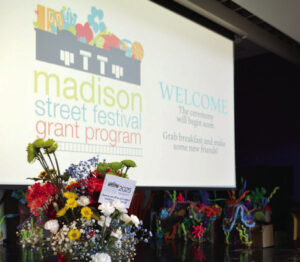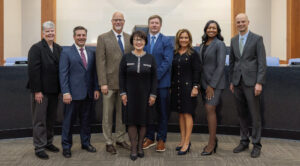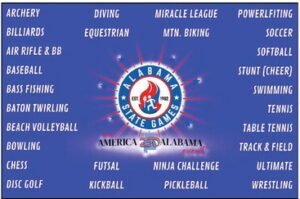Sci-Quest has science fun for all
By By Tracy L. Brady
Record Reporter
Learning doesn't have to end for the young Einstein or Marie Curie in your family just because school is out for summer.
Sci-Quest, the North Alabama Science Center Inc., is a non-profit, hands-on science playground for children of all ages.
Sci-Quest, located behind the Calhoun Community College Huntsville campus on Wynn Drive, currently houses 150 interactive science exhibits. Exhibit areas include Early Childhood, Electricity and Magnetism, Fluid Dynamics, World Ecosystems and Weather Science, Engineering, Physiology, and Chemistry and Material Sciences.
And then there's Grossology.
"Grossology deals with those rather indelicate things our body does and kids are curious about but don't want to talk to adults about," Sci-Quest Director of Programs and Operations Laurie Provin said. "Truth be told, the adults like it, too."
Grossology uses common terms for bodily functions and gives simple scientific reasons as to why they happen.
"Do not try this at home," Burp Man warns after emitting an enormous belch once his stomach acids have been churned.
Provin said Grossology may not be the classiest exhibit at Sci-Quest, but it is the most popular.
Year-round learning fun
According to Provin, each exhibit at Sci-Quest meets kindergarten through eighth grade curriculum standards for the Alabama Course of Study.
The center offers education programs throughout the school year to service students, youth organizations, families and individuals who are interested in science or maybe thinking of a career in science.
But the learning fun doesn't end when the local pool opens.
Sci-Quest hosts approximately 50 two-hour classes, four of which are weeklong camps, during June and July for budding scientists.
Education programs like "How Does Your Garden Grow," "Superstructures," and "Rockin' Rockets" are offered to children as young as four and as old as 12.
"This summer's classes are about 90 percent booked," Provin said. "The classes are fun and informal, so kids don't feel as though they're sacrificing part of their summer in a classroom."
Rates for classes start at $13 for non-members.
Students 13 and up can participate in the Summer Youth Volunteer Program at Sci-Quest. Sci-Guides volunteer about 4 hours a week to play with the exhibits and help demonstrate how exhibits work to younger visitors.
"They're wonderful because the younger kids usually respond better to teenagers than they do to adults," Provin said. "Some of our volunteers have even become employees."
This is the second summer for Sci-Guide Chris King to volunteer his time to Sci-Quest.
"It's great to be the first to try new exhibits," King said. "But the best part of being a Sci-Guide is teaching and learning at the same time. It's more fun than being in a classroom."
King will be a freshman at Grissom High School this fall.
Sci-Quest also offers an Education Resource Center to teachers and home schools in North Alabama for a minimal $10 annual fee.
Teachers can check out education materials like microscopes, balances, books, videos and lesson plans. Sci-Quest also offers field trips and birthday parties throughout the year.
Also, look for a photography camp during the October academic fall break in conjunction with the Huntsville Art Museum. Provin said this is the first collaborative learning effort Sci-Quest has participated in with another community institution.
Bigger and better
Sci-Quest opened in October of 2001 and featured over 40 interactive exhibits, all volunteer built, to demonstrate the basic principles of science.
While Sci-Quest is continually adding new science components in order to stay at the educational forefront of science, a major new exhibit is scheduled to open by early 2003.
"An immersive reality Super Lab" is currently under construction thanks to the majority of a $2.9 million NASA grant. The lab will feature a communication exhibit area and a reality center with seating for 60 and 30 computer workstations. A theatre size immersive reality screen with facilitator and driver will take students on a tour of the galaxy by using public domain data bases, like Mars Probe, with flowing images of the universe.
Super Lab will be available to high school and college students for more in-depth science exploration and study.
"The possibilities are limitless with Super Lab," Provin said. "This is the first of its kind in the United States and we are so excited to have it here in North Alabama."
















